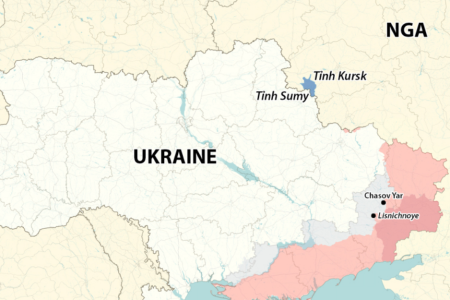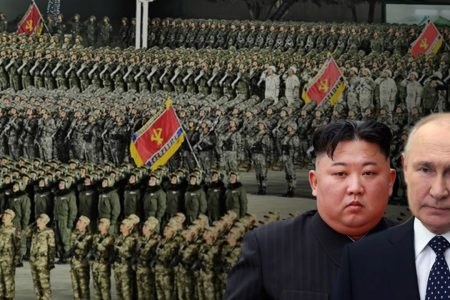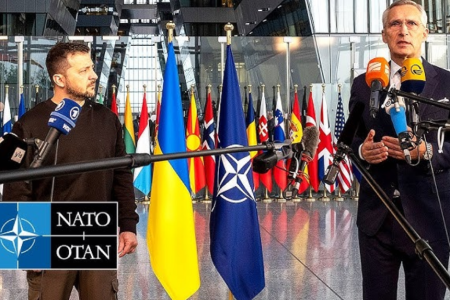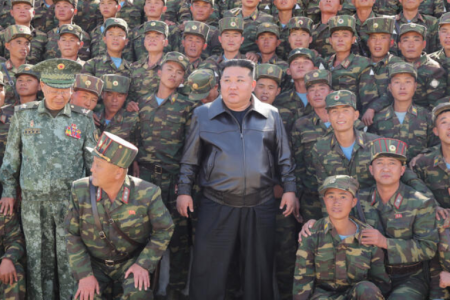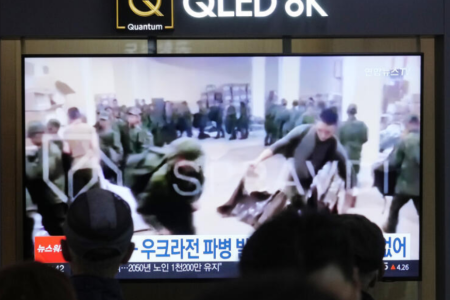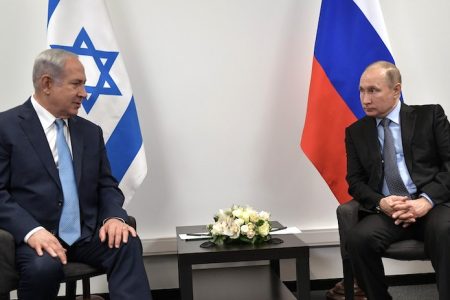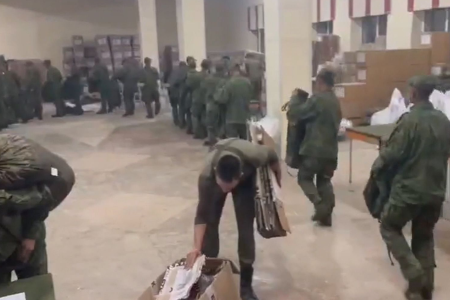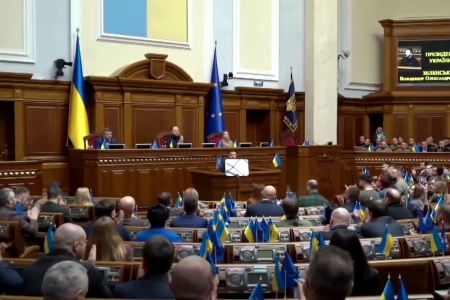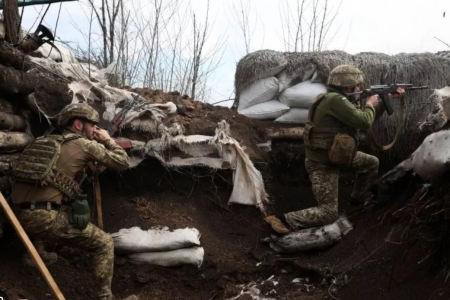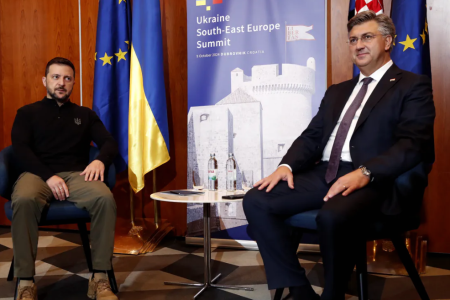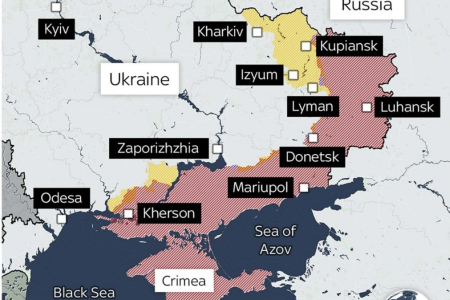Just before Trinh Xuan Thanh prepares to appear in court in Vietnam in a new trial on March 8, news of a “Cold War-style kidnapping in Berlin” surfaced in the media in Germany and Slovakia.
As far as we know, former Deputy Prime Minister, Interior Minister of Slovakia, Mr. Robert Kalinak, and some officials of this ministry may be investigated for charges of “conscious” in the provision of providing a charter flight of the Slovak government to the kidnapper’s group to move from Bratislava to Moscow in July 2017, after the group quickly abducted and took Mr. Trinh Xuan Thanh out of Germany.
As an ally in the EU, the German side is certainly giving Slovakia maximum judicial assistance in the case that Slovakia reopened, according to this country newspaper on March 5, 2021.
The new Chief Prosecutor of Slovakia, Mr. Maros Zilinka is determined to do the same thing.
Germany-Slovakia relations that led anyone involved in the incident in these two countries will have to provide facts to investigators about the work with the Vietnamese kidnapping group, including high-ranking officials and other Vietnamese diplomats.
It is difficult to assess all the troubles that the Vietnamese side will meet in the coming days.
The problem is not personally Trinh Xuan Thanh
During a recent regular press conference, Spokeswoman Le Thu Hang of Vietnam’s Ministry of Foreign Affairs avoided direct answers to questions from foreign reporters about the kidnapping.
“The case of Trinh Xuan Thanh violating the law has been tried openly and transparently in accordance with the Vietnamese law, and currently Trinh Xuan Thanh is serving his sentence under the court’s judgment,” she said.
Later, a major Vietnamese police general confirmed that it was normal to reward “those with meritorious services in the Trinh Xuan Thanh case,” but described the news surrounding the incident as “weaving.”
Vietnam did not confirm there was a kidnapping, but Germany said it did.
The determination of the name “kidnapping” has been investigated and concluded by the German judiciary, which has a world reputation. The evidence, witnesses, and traces left by the kidnapper’s group and examined in court are enough.
The conclusion of the German Federal Supreme Court (Bundesgerichtshof) – the highest court for criminal convictions, issued in 2018 about the illegal kidnapping will last forever. The content of the court’s ruling on a kidnapping, a blatant violation of German law, is unchanged, no matter what Vietnamese officials say.
Why does Berlin think that Trinh Xuan Thanh should be sent back to Germany?
On Friday, March 5, Ms. Petra Isabel Schlagenhauf, the lawyer representing Trinh Xuan Thanh in Germany, told us that she was “completely confident” that her client would return to Germany.
German law stipulates that anyone who comes to Germany to apply for asylum, during the examination period, is entitled to legal temporary residence status in Germany and receive German patronage.
The fact that Vietnam sent people to Berlin to kidnap Trinh Xuan Thanh was a blatant violation of German territorial sovereignty and security, a serious violation of international law, according to Ms. Petra Isabel Schlagenhauf.
“International law needs to be respected by all countries,” she said.
Therefore, Vietnam is obliged to acknowledge the wrongdoing and have to return the matter to its original place and return Trinh Xuan Thanh to Germany, according to the lawyer.
As far as we understand, it is also the “open measure” of Germany for Vietnam to help Vietnam remove the deadlock because “Vietnam will still face international condemnation after all that there was a kidnapping that violated international law,” said Ms. Schlagenhauf.
If you don’t kidnap Trinh Xuan Thanh, will there be a hindrance to the corruption investigation in Vietnam?

Some argued that it is necessary for Vietnam to conduct the kidnapping because Trinh Xuan Thanh holds important information for the disarming and adjudication of some major corruption cases in Vietnam.
One thing is forgotten, however, that his deportation needs to be done in a way that is consistent with the law, both international and national law, instead of “the jungle law.”
Trinh Xuan Thanh has applied for asylum in Germany, but that does not mean that he will automatically have the right to stay in Germany for a long time.
Like millions of other asylum seekers, he went through the application process. If he cannot prove a good reason to be accepted, he will also face deportation back to Vietnam.
Trinh Xuan Thanh was not even an important figure to Germany.
As an ordinary asylum seeker, Thanh is allowed to move freely within a certain area of Germany.
He had no need or any special protection from German security.
Therefore, Vietnam could have completely asked the German side for extradition so that it could take Mr. Thanh back to his country openly and justly.
The cost of “Plan VT17”
However, Vietnamese officials have chosen to act recklessly, in spite of international law, and regardless of national dignity.
The kidnapping is a foolish recklessness, lack of strategic thinking, seemingly only to earn points, to satisfy someone’s wishes in the Vietnamese regime.
The former German Foreign Minister, Sigmar Gabriel, said the kidnapping “was like scenes from a Cold War horror film” and that it was “intolerable.”
However, regardless of whether Germany has tolerated it, for Vietnam, as Mrs. Schlagenhauf said, “the kidnapping is a success” although “diplomatically it is a big stain.”
The “success” is shown by openly rewarding, awarding medals and certificates of merit to 12 individuals who participated in the ‘VT17 Specialist’ now perhaps permanently going down in history as a stain in Vietnam – Germany and Vietnam relations before the international community.

The “success” is exchanged with the suspension of the German-Vietnam “Strategic Partnership” by suspending hundreds of projects of German cooperation and aid to Vietnam, with difficulties delay in signing EVFTA Trade Agreement between EU and Vietnam and accompanying economic losses.
This “success” will now go through an unpleasant period, once Slovak authorities continue their investigation in their country.
And most importantly, that “success” is exchanged for a great loss that cannot be counted all, that is the trust and image of Vietnam in the international eyes that have been tried to create for many years. In the 2017 kidnapping case, it is most likely to get worse if Vietnam does not cooperate when requested by Slovakia.
Germany wants Vietnam to let Mr. Trinh Xuan Thanh return to Berlin, Vietnam does not respond, if Slovakia has a request for cooperation in the investigation, Hanoi can continue to ignore it?
Is it true that after being drunk with the initial “success,” the fact that Vietnamese officials have been and will do in the coming time will be how to remove a part of the stain on their face before Germany, the EU, and the international community?
Or the Vietnamese government, after considering the disadvantages and protecting its reputation, will now have different behavior, more civilized, and more suitable in international relations?
“I think it depends on what the fate of the very key people who organized his kidnapping in Vietnam,” said Ms. Schlagenhauf.
“It is an uneasy topic that Vietnam has to deal with, and my client’s fate will be decided at a time when Vietnam becomes aware of the need to correct its wrongdoings.”

Vietnamese Foreign Ministry Spokeswoman Le Thi Thu Hang on the afternoon of February 25 said that Trinh Xuan Thanh, a former oil and gas official applying for asylum in Germany, had been tried publicly in accordance with Vietnamese law.
Also related to this case, on February 24, a German-Taz daily also announced the special project coded VT17 relating to the abduction of Trinh Xuan Thanh.
Ms. Hang said this at a weekly press conference in Hanoi when asked by the press to comment on the news that the Slovak and German media reported that 12 Vietnamese participating in the kidnapping of Trinh Xuan Thanh in Germany were honored.
Slovakia State Television & Radio on February 23 broadcast a television program related to the kidnapping of Mr. Trinh Xuan Thanh. The program content mentioned that 12 officers of the Ministry of Public Security of Vietnam were commended and rewarded in 2020 for completing the task of kidnapping Mr. Trinh Xuan Thanh.
From Germany, journalist Le Trung Khoa commented to VOA about Vietnam’s response to the DPA question.
“The Vietnamese side’s reaction to the news – first published by Slovak Television on February 23, and Taz newspaper on February 24 with detailed information and new details – Vietnam had to answer to the question of the German news agency DPA. But they answer that way, almost avoiding the question, not answering directly, but only repeating what they said earlier.”
“They replied in a way that means they neither reject nor admit.”
“With such an answer is unreasonable and the reporter does not have any new information, but this proves that the more Vietnam avoids the case of kidnapping Trinh Xuan Thanh with the VT17 project, the more troubles, and problems they meet with Germany, Slovakia, and the European Union.”
On February 24, Taz newspaper published “The kidnappers honored by Hanoi” in which about 12 secret agents and security officers of the Vietnamese Ministry of Public Security were awarded medals in July 2020 signed by the General Secret cum State President Nguyen Phu Trong for the completion of VT17 mission.
Thoibao.de (Translated)



